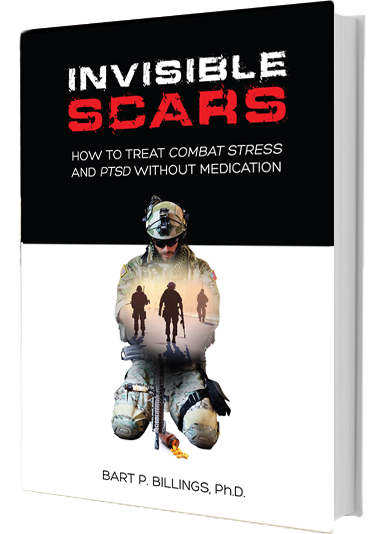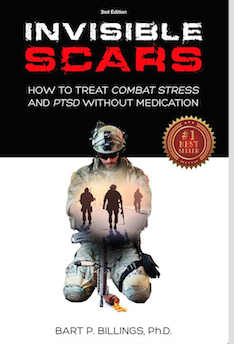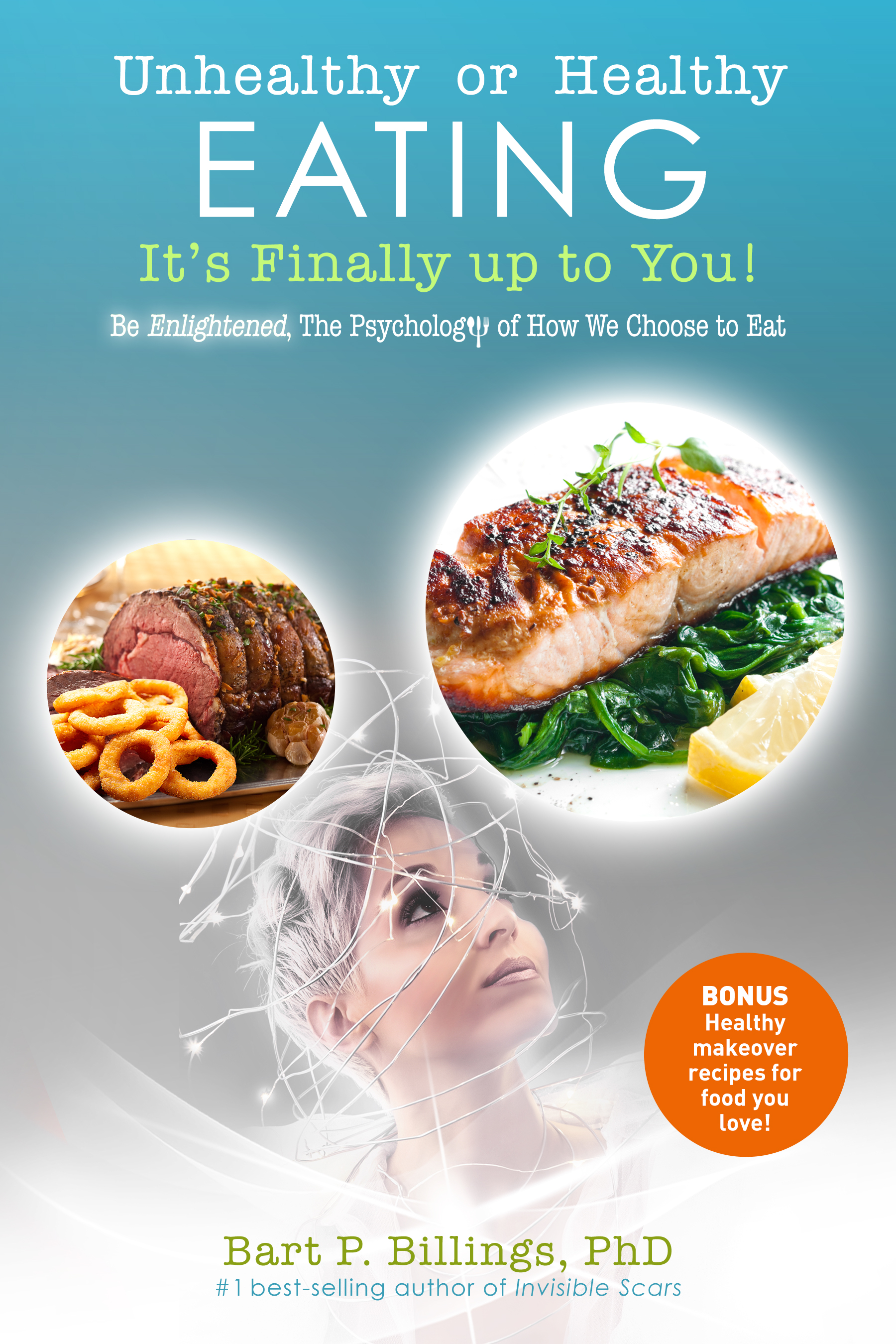About the Book
About the Book


Invisible Scars: How to Treat Combat Stress and PTSD without Medication
INVISIBLE SCARS is the only book specifically addressing and outlining how individuals experiencing combat stress and PTSD are suffering longer and with worsening symptoms, because of the massive use of psychiatric medications. Dr. Billings provides an uncensored description and data showing the dangers involved in taking psychiatric medications, and he explains in clear and concise terms how to work with individuals, without the use of psychiatric medications.
Of the 2.4 million U.S. troops, who have been deployed to Iraq and Afghanistan, 30% return home with post-traumatic stress due to combat related stress and more than 320,000 suffer from traumatic brain injury (TBI). Many more are misdiagnosed or are not diagnosed at all. Troops, who are exposed to PTSD in the form of high levels of stress and anxiety during combat are more likely to withdraw, engage in substance abuse, show signs of depression, or even commit suicide after returning home.
22 veterans commit suicide every day!
INVISIBLE SCARS is extremely relevant and needed at this critical time, because literally hundreds of thousands of people are being given anti-psychotic medications, anti-depressant medications and anti-anxiety medications at epidemic rates. Veterans, their families and the general civilian population are being lost and forgotten. This book is a must read for anyone working in mental health, social work and those working with combat stress and Post Traumatic Stress Disorder (PTSD).
![]()
TABLE OF CONTENTS
Foreword
Introduction
Dedication
Chapter 1: Mental Health Treatment Programs in the United States
- What is a Black Box Warning?
- Insights Developed During the Past Twenty-Two Years at the Combat Stress Conference
Chapter 2: Reconciling the Effects and Treatment of Combat Stress Now and Throughout History
- Combat Stress in the Civil War and Beyond
- Combat Stress in WWI
- Most Current Wars Using the Term PTSD
- So What is the Difference Between Combat Stress and PTSD
- The Utilization of Brain-Altering Medications and Contrasting Integrative Treatment
Chapter 3: Suicides and Homicides Within the Armed Forces and Civilian Community: A Direct Link to Psychiatric Medications
- The Military Can Be an Ideal Family for Suicide Prevention
- Dangerous Side Effects
- The Case of Chris Kyle, the American Sniper
Chapter 4: Psychiatric Medication and Relationship to Dead-In-Bed Syndrome & Traumatic Brain Injury
- Veterans with TBI
- Brain Trauma and PTSD
Chapter 5: Congressional Hearings Testimony Regarding Suicides and Psychiatric Medications in the Military
- My Testimony for the Veterans’ Affairs Committee of the House of Representatives on February 24, 2010
Chapter 6: Recommendations for Effective Mental Health Treatment: Integrative Wellness Programs for Veterans and Civilians
- Integrative Treatment/Wellness Modalities
Chapter 7: Reality Therapy/Choice Theory
- The Good, the Bad, and the Ugly: The Truth about Mental Health Providers
- The Good
- Levels of Friendship/Involvement
- The Bad
- The Ugly
- Reality Therapy/Choice Theory Psychology as My Treatment of Choice and the Core of Integrated Wellness Programs
- Integrative Treatment Recommendations Made to Vets at My Restaurant
Chapter 8: Human Assistance Rapid Response Team (HARRT) Program
- HARRT Questionnaire
Chapter 9: Transitional Reactions: Making the Transition from Military to Civilian Life
- Psychiatric Meds on the Battlefield Can Interfere with Transitions after Deployment
- Returning to the Neighborhood
Chapter 10: The Evolution of the Tri-Service Combat Stress Conference
Chapter 11: Veteran Lawsuits Against Government Facilities and Violation of the Standards of Care for the Psychological Needs of our Veterans
- The Eddie Ray Routh Trial for the Killing of Chris Kyle
Chapter 12: Correlation Between Mass Shootings and Psychiatric Medications
Chapter 13: Additional Resources and Articles
- Report Says VA Failed in Care of Veteran. San Diego Union Tribune
- List of Antidepressant Drugs with Medication Guides
Acknowledgements
About the Author



